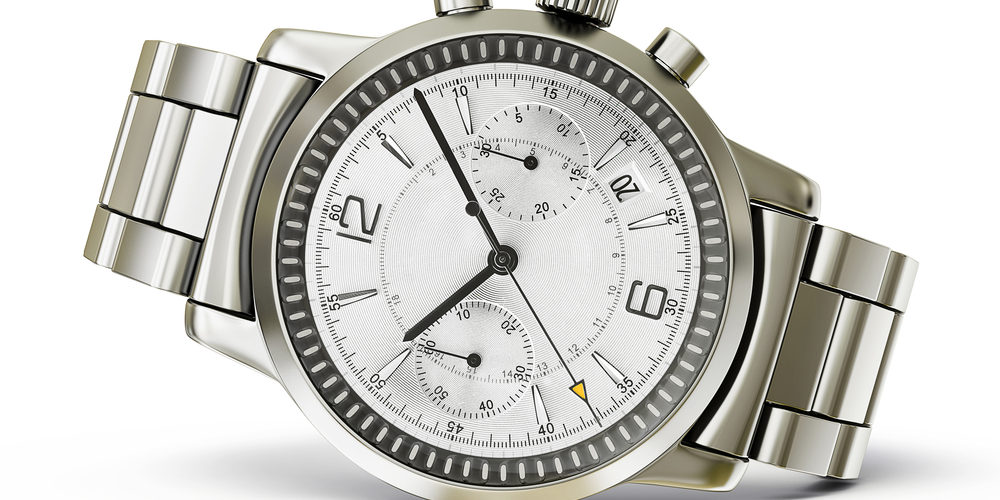Have the greatest respect for other people’s time – and your own

Dov Frohman was a legendary CEO of Intel Israel. When he was a young manager, he sent global chief executive Andy Grove a five-page proposal for shifting the Jerusalem production line from memories to microprocessors.
The proposal came back, unread, with just a stamp on it that said: “Please respect my time.”
This is recounted in Mr Frohman’s excellent book, Leadership the Hard Way. When I first read about the incident, I was aghast. No explanation, no handwritten note, no phone call? Just a brutal rubber stamp? You realize that Andy Grove probably didn’t even see the document – his assistant just had clear instructions to return unread anything that was over a certain number of pages.
Young Frohman, fortunately, did not take offence. He got the message, loud and clear. In his words: “…the proposal was way too long. He wanted one page, not five. Grove’s request – ‘please respect my time’ – had an enormous effect on me. Indeed, it sparked a lifelong reflection on how leaders use – and abuse – their time that eventually led to my focus on freeing up time…”
Though I was taken aback at the bluntness of the rubber-stamp response, a part of me was envious. I sometimes wish we all had an automatic response of some sort. I wish it were possible to protect our own time by being frank without being brusque; to be terse without causing offence. It isn’t usually possible.
Was Andy Grove right, though? Should he be that sensitive about his precious time?
I think we should all take stock of the time we have available in our lives. Our time is finite – and we don’t know the amount we have. It is in fact the most scarce resource we possess. We simply don’t know how many healthy, productive days we have in our ambit. There could be quite a few – or they could run out very suddenly.
Why wouldn’t we then want to be very protective of our time? We are very mindful of all the other assets we hold – wealth, health – so why not of the one that will definitely run out – time on Earth? Why should we make it available to anyone who asks?
CEOs and leaders of large organizations and nations have a built-in advantage: no one expects them to have any time to spare. That is why Andy Grove could get away with his dismissive rubber stamp. And it is true: running a large enterprise tends to take up every second of available time. Chief executives are often the most stressed-out people I meet. Their lives are their calendars.
But a word of advice to them: are you all spending your time on the right things? Elsewhere in his book, Mr Frohman refers to a passage from Marcus Aurelius’s Meditations: “The greatest part of what we say and do is unnecessary…on every occasion a man should ask himself, is this one of the unnecessary things?”
I would say the same to any really busy person: are you sure you have focused your time and energy on the right things? Is what you are doing right now mission-critical, or are you off the highway and squandering your time in some winding side-road? Should this thing you are doing right now be done by others? What are the things that only you can do in your present setup – are you doing those, or working on everyone else’s stuff?
To those seeking time from the genuinely busy, I would ask politely that you get real. When people are monomaniacs on a mission, you should really not get in the way. You are asking them to cut out a chunk of their lifespan so that you can gain some benefit in yours. Be realistic, and frame your request in such a way that the time taken on it is minimized. And don’t catch feelings if the time doesn’t come.
To those lost in “busyness” I would ask: be sure first that it is the necessary that takes up your time, not the unnecessary. Also, free up a segment of time that is simply unscheduled – that allows you space to think freely and embrace life’s surprises and serendipities. A segment that allows you, perhaps, to read Meditations before you’re too old…
Finally, no matter who you are, keep a precious chunk of time always free for those who matter to you, or for those who unexpectedly need it, and make it available on demand. That’s what makes you a human being and not a metronome.
(Sunday Nation, 10 June 2018)

Buy Sunny Bindra's new book
The X in CX
here »
Popular Posts
- NY’s wake-up call to the old guardNovember 9, 2025
- Save your strength for repairsNovember 2, 2025
- How to listen, really listenNovember 16, 2025
- Empathy is the missing code in CXOctober 26, 2025
- Is AI hiring your company into oblivion?November 23, 2025















